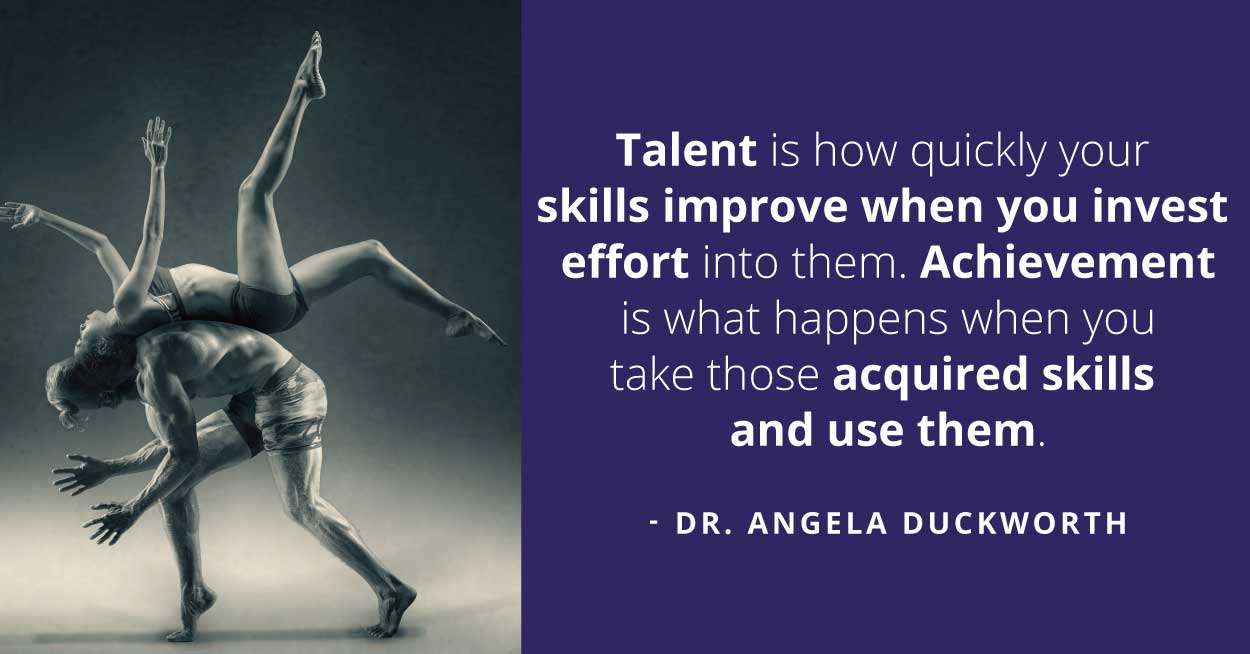
You’re no genius
This is what Angela Duckworth’s father used to tell her as a child. When Angela did not score high enough to be taken into the ‘gifted and talented’ program at school, it only further cemented this belief of his.
Take a look at Angela now –
► She has a BA in Neurobiology from Harvard University
► As a ‘Marshall Scholar’ she earned her Master’s in Neuroscience from Oxford.
► She has received her PhD in Psychology from the University of Pennsylvania.
► She is currently a Christopher H. Browne Distinguished Professor of Psychology at the University of Pennsylvania.
Here’s the biggest irony:
In 2013, Dr. Angela Duckworth was awarded a MacArthur Fellowship, which is also known as the “genius grant”.
How did this happen?
The answer lies in Dr. Duckworth’s groundbreaking research on grit and its incredible power of driving people towards success.
“Talent counts, but effort counts twice,” she states, in her work, Grit: The Power of Passion and Perseverance.
To understand what this means, take a look at this simple formula that she posits for success. Note the number of times talent occurs in the formula, and the number of times effort does.
Talent x Effort = Skill
Skill x Effort = Achievement
Clearly, effort indeed contributes more to success than talent does. Thus, while Duckworth was not “born a genius”, her relentless efforts were enough to turn her into one.
Effort vs. Talent
Still skeptical? Well, in that case, it might help to redefine what talent and effort mean to us. All our lives, we are taught that ‘talent’ is the natural capabilities of a person. We were made to believe that if a person is ‘talented’ at Mathematics, they are automatically ‘good’ at it. Dr. Angela Duckworth, however, turns this definition upside down.
According to her, ‘talent’ is merely the speed with which we attain our skills.
“Talent is how quickly your skills improve when you invest effort into them. Achievement is what happens when you take those acquired skills and use them.” – p.42, Grit: Why Passion and Resilience are the Secrets to Success.
‘Effort’, on the other hand, has to do with sustained persistence, a willingness to learn, to fail, and to grow in our talents.
After examining the predictors of success amongst a diverse set of population, Duckworth concluded that talent was indeed an inaccurate predictor of success.
So, does talent matter at all?
At this point, you may argue that talented people are always the ones that make it to the top. And this is true. Look at Sachin Tendulkar, The Beatles or Meryl Streep. No one can deny their talent.
And Duckworth doesn’t deny the existence of talent either.
“It’s not that talent doesn’t matter,” she states.
I believe that talent exists… But whatever your talent, you have to engage to realise that talent.
In fact, during her research, Duckworth made one major discovery, that talent is either unrelated or inversely related to the grit that one possesses. Simply put, possessing talent can sometimes lead to the person becoming more laid-back and result in them not investing as much time and effort into their pursuits as they would otherwise.
With this in mind, it’s that Sachin Tendulkar, The Beatles, and Meryl Streep didn’t shoot to the top based only on talent. They went one step ahead. They engaged with their talent and put in the effort required to turn their talent into achievement.
Effort: The not-so-secret ingredient for success
Alright. So, maybe talent isn’t everything. But how do we put in the effort when we feel like we just don’t have the talent or skills to achieve something?
The key to this, according to Duckworth, is the “growth mindset” that has been advocated by Stanford University psychologists, Dr. Carol S Dweck and Dr. Gregory M Walton. People with growth mindsets are learners. They believe that failure isn’t a permanent condition. They can get back up and start all over again, with lessons learned.
Besides the growth mindset, Duckworth also stands by skill development for success. Here, she elaborates that developing expertise in an area begins with the discovery of something that merely sparks an interest within us. Once we have ‘discovered’ this interest area, the fun or hard work begins. This is the development phase, where we must deliberately practise our skills by honing them, and through trial and error, achieve success.
“Over time, we learn life lessons that we don’t forget,” states Angela Duckworth in her book.
We adapt in response to the growing demands of our circumstances. Eventually, new ways of thinking and acting become habitual. There comes a day when we can hardly remember our immature former selves.
Are you looking to build High Performing Resilient Organisations? We can help. Feel free to get in touch for assistance in building a culture of positivity and high performance.